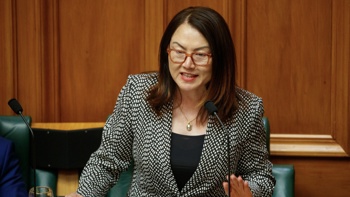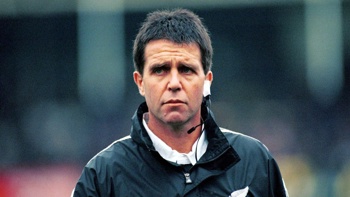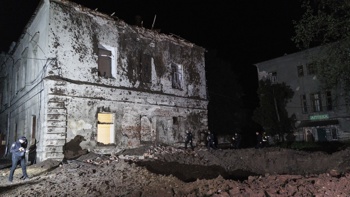When it comes to history lessons, our schools are focussing too much on local and Māori history, leaving out things like national and global history.
That’s what’s come through in a report out today from the Education Review Office. But, as someone who studied history at school and came away ignorant of a lot of New Zealand’s history, I don’t see what the problem is.
When I first went to live in London, it used to amaze me talking to English people about stuff they did at school and how —when it came to history— whole classes would shoot over the English Channel to European countries on school trips.
And when it comes to history, Europe is full of it, isn't it?
And when I think back to my history lessons here in New Zealand, all I can remember is studying the apartheid system in South Africa during the 5th form, and there was a bit of European history in there somewhere, as well. Stuff that went down in Constantinople - that sort of thing.
This was in Dunedin. And do you think there was anything in those history lessons about the Otago gold rush or anything about Ngāi Tahu?
I did know about the first shipment of refrigerated meat from Port Chalmers in February 1882 that Mike Hosking mentioned when he was talking to Education Minister Erica Standford this morning. But that wasn’t something I learned at school. I just picked that up. Like you do with a lot of history.
But was there anything in those history lessons I did about the gold rush or Ngāi Tahu? Of course, there wasn’t. Which meant that people of my generation grew up not knowing what we should know about our country’s history.
Fast-forward 30-plus years, and it was only when I was doing some te reo lessons that I heard anything about Ngāi Tahu's history on Banks Peninsula.
And that experience of mine is exactly why the history curriculum in New Zealand schools was changed. To make sure that we don’t have future generations of New Zealanders growing up, like I did, pretty much ignorant of a lot of New Zealand’s history.
Problem is, the curriculum teachers have been working to isn’t really a curriculum. It’s more of the usual head office education waffle. Which has meant it’s been up to schools themselves to develop their own history curriculums and it seems that their default has been to focus on local and Māori history, leaving out things like national and global history.
That’s what the Education Review Office is saying today.
But, as far as I’m concerned, what kids need to know is the stuff I didn’t know about when I left school.
Example: Parihaka. Nothing was taught to me at school about the invasion of the western Taranaki Māori settlement of Parihaka by about 1600 government troops.
The settlement was where Māori had gone to be part of a peaceful resistance to the confiscation of Māori land. But on 5th November, 1881, the troops were sent in.
How ironic is that? On 5th November we get the fireworks out because 400-odd years ago old Guy Fawkes tried to blow-up the British Parliament. But, on the same date, it’s the anniversary of the Parihaka invasion.
But do we ever hear anything about that on 5th November? Of course, we don’t. That’s because we’re obsessed with the history of other countries - when we should be more obsessed with our own history.
And we’re not. Because we haven’t been taught it. Until now. But, apparently, that’s not a good thing.
Where I would agree with the Education review Office, is that there needs to be some sort of re-balancing of the history curriculum. Because you’re not going to hear me argue that kids shouldn’t be taught about things like the Holocaust, or 9/11, or the ‘87 sharemarket crash and what it meant here in New Zealand. And yes, maybe even the first shipment of refrigerated meat from Port Chalmers in February 1882.
But you’re also not going to hear me argue that we should be ditching Māori history or really local history.
Take your Radio, Podcasts and Music with you










